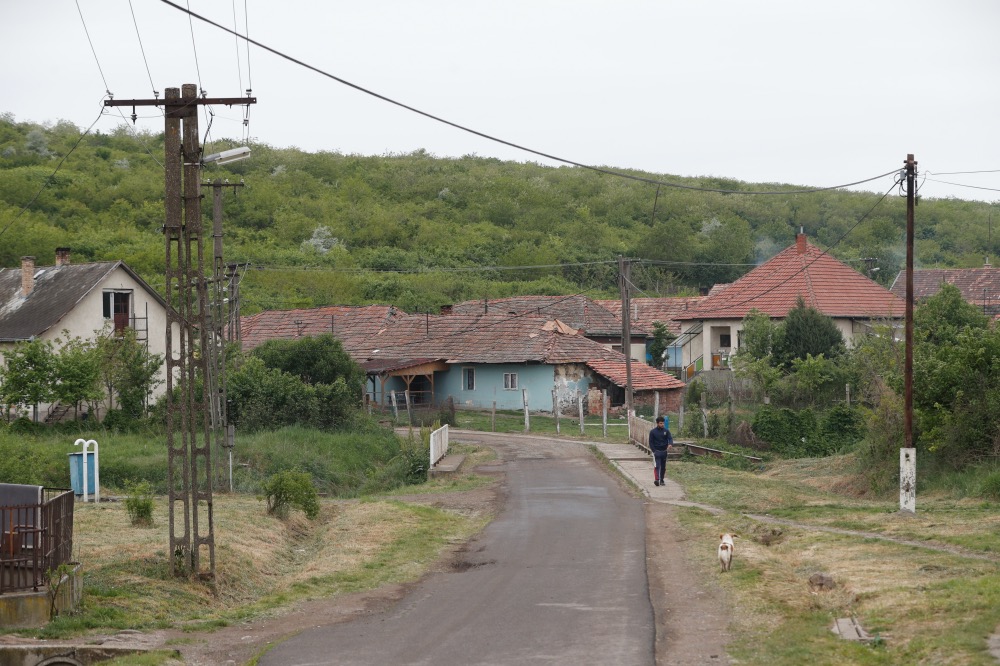London, UK
Thomson Reuters Foundation
Roma communities across Europe have become a police target in lockdown, a report found on Wednesday, amid a sharpening global focus on racial equality and law enforcement.
The report by Amnesty International, a human rights organisation, said Roma communities had faced tougher quarantines than citizens who posed a greater health risk.

A general view of the Roma part of the town Gyongyospata, Hungary, on 13th May. PICTURE: Reuters/Bernadett Szabo
People returning from places with high rates of the new coronavirus – such as Italy – were not targeted by authorities with the same stringent measures as Roma communities, who were quarantined en masse in whole apartment blocks or streets, Amnesty researcher Barbora Cernusakova said.
“With Roma, the explanation always was a mixture that ‘they congregate and live in bigger families and are not disciplined,'” Cernusakova told the Thomson Reuters Foundation.
“They came up with the idea that the Roma were somehow a source of infection…Those things show very, very clearly that there is a very, very strong bias.”
Many Roma live on the fringes of society and struggle for work – with those in small settlements facing legal problems when it comes to land ownership, human rights experts say.
Sweeping lockdown measures have exacerbated social and economic difficulties faced by Roma communities and increased dependence on credit, with many quarantined and without work for weeks.
Roma communities were largely targeted in Bulgaria and Slovakia – home to some of Europe’s largest Roma minorities – while migrants were targeted in cities such as Calais in France, a common stopoff for refugees fleeing war and poverty.
The Bulgarian and Slovak governments did not immediately respond to requests for comment.
Roma communities were targeted in seven countries across the European Union, including France, Greece and Hungary, according to the report.
It found instances of racially motivated police discrimination and excessive use of force across Europe, with different ethnic minorities targeted in different countries.
Cernusakova said the communities targeted by police were often the largest minority and that the pandemic had deepened existing racial biases.
“The interesting thing about it is that these cases are new but also old,” she said.
Bulgarian officials have said the Roma are not following social distancing rules and their poor living conditions make it harder to uphold good hygiene, justifying the extra measures.
In May, United Nations human rights experts urged Bulgaria to change tack, saying: “We are deeply concerned at the discriminatory limitations imposed on Roma on an ethnic basis that are overtly supported by Bulgarian State officials as part of the broader measures to prevent the spread of COVID-19.”
Police officials worldwide have faced growing questions over the use of force and racial bias since the death of George Floyd, an unarmed Black man who died in US police custody.
Amnesty International found last year that the rights of Roma had been violated in more than half of all European countries, with impunity for unlawful use of force by law enforcement in 13 of the 35 countries in Europe.





